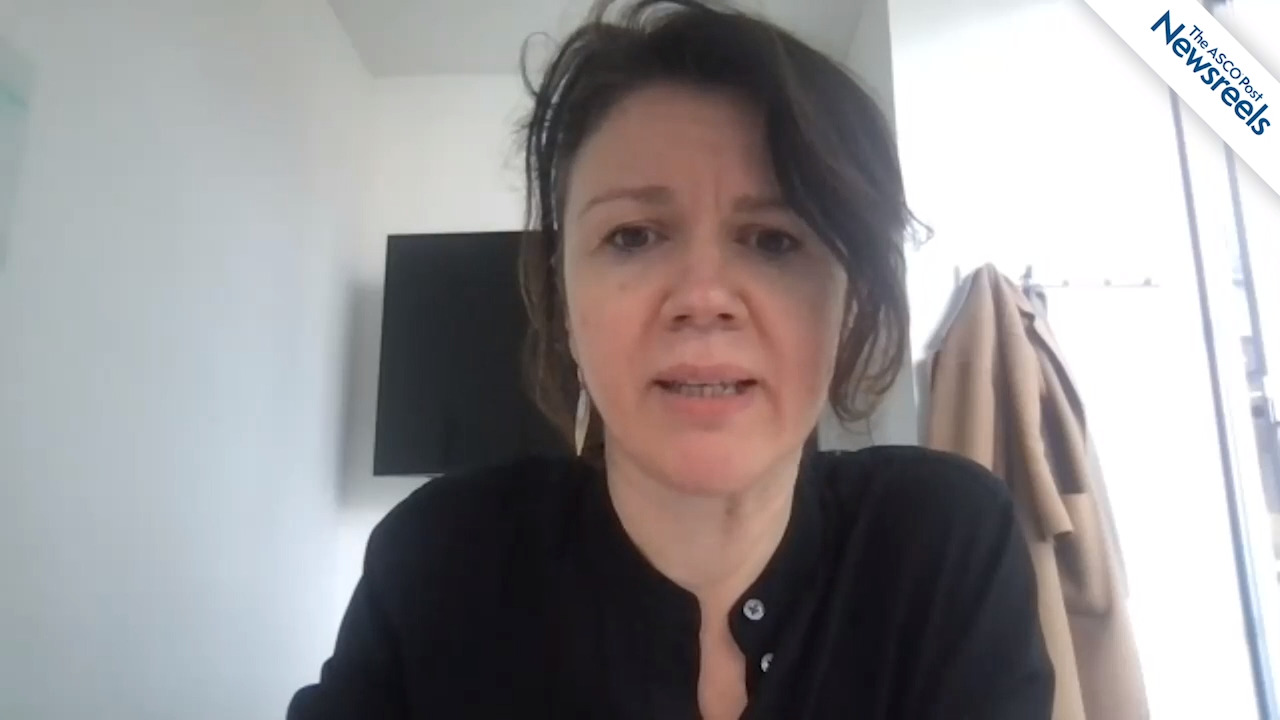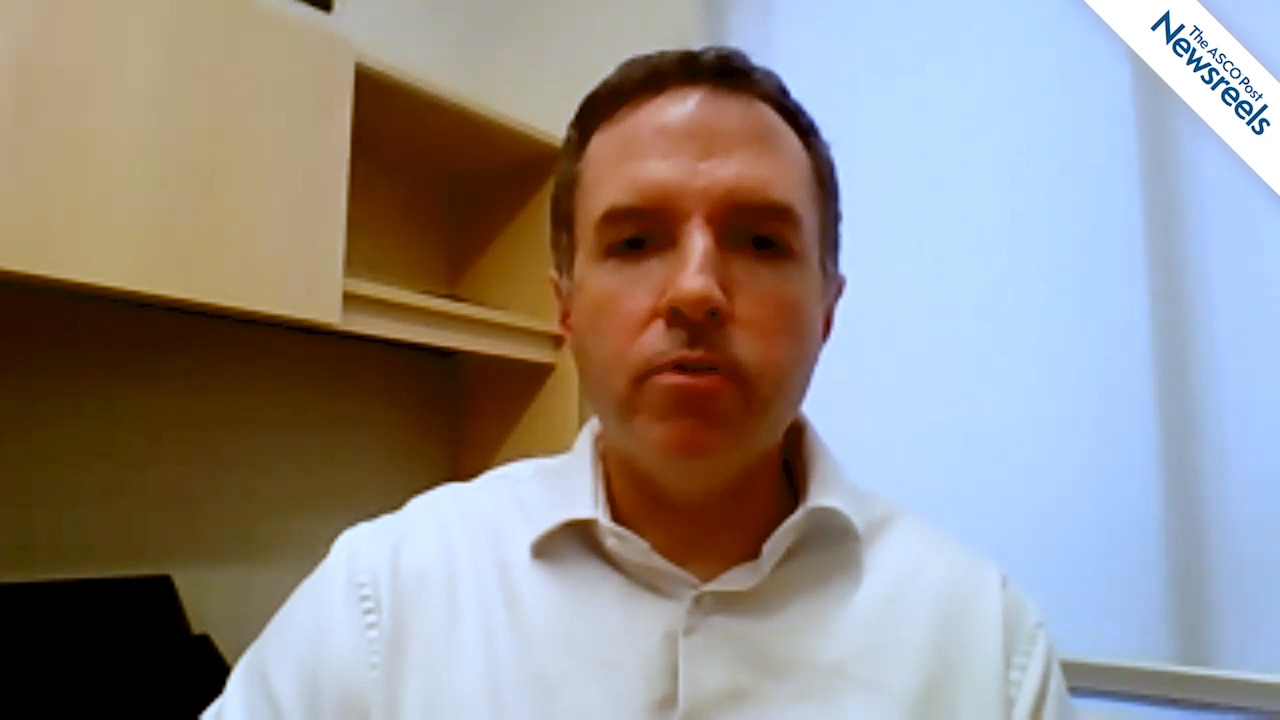Jeanne Tie, MD, MBChB, on Circulating Tumor DNA, Minimal Residual Disease, and Adjuvant Treatment
AACR Annual Meeting 2021
Jeanne Tie, MD, MBChB, of the Peter MacCallum Cancer Centre, discusses how to improve the current, somewhat imprecise, approach based on pathologic staging alone, used to select patients for adjuvant treatment. Circulating tumor DNA analysis after curative-intent treatment may detect minimal residual disease and might be used to predict recurrence and adjuvant treatment efficacy across multiple tumor types.
The ASCO Post Staff
Richard S. Finn, MD, of UCLA Medical Center, discusses updated efficacy and safety data from the IMbrave150 trial of patients receiving atezolizumab plus bevacizumab vs sorafenib as first-line treatment for unresectable hepatocellular carcinoma (Abstract CT009).
The ASCO Post Staff
Samra Turajlic, MBBS, PhD, of The Francis Crick Institute, discusses our limited understanding of metastases in terms of the timing of dissemination, the many metastatic phenotypes and varieties of seeding, as well as how the spread of cancer evades the immune system and resists treatment. Expanding this knowledge base is critical to better managing malignant disease.
The ASCO Post Staff
Rita Nanda, MD, of the University of Chicago, discusses the latest data on novel treatment strategies for triple-negative breast cancer, including immune checkpoint, PARP, and ATK inhibitors; antibody-drug conjugates; and targeting the androgen receptor.
The ASCO Post Staff
Patrick M. Forde, MD, of the Sidney Kimmel Comprehensive Cancer Center at Johns Hopkins University, discusses results from the CheckMate 816 trial, which showed that adding nivolumab to chemotherapy as a neoadjuvant treatment for patients with resectable non–small cell lung cancer improved the pathologic complete response rate to 24%, compared to 2.2% with chemotherapy alone (Abstract CT003).
The ASCO Post Staff
Georgina V. Long, MD, PhD, of the Melanoma Institute Australia, University of Sydney, discusses results of the CheckMate 915 trial, which may reinforce nivolumab as an adjuvant standard of care in patients with stage IIIB–D/IV melanoma, with or without complete lymphadenectomy (Abstract CT004).





